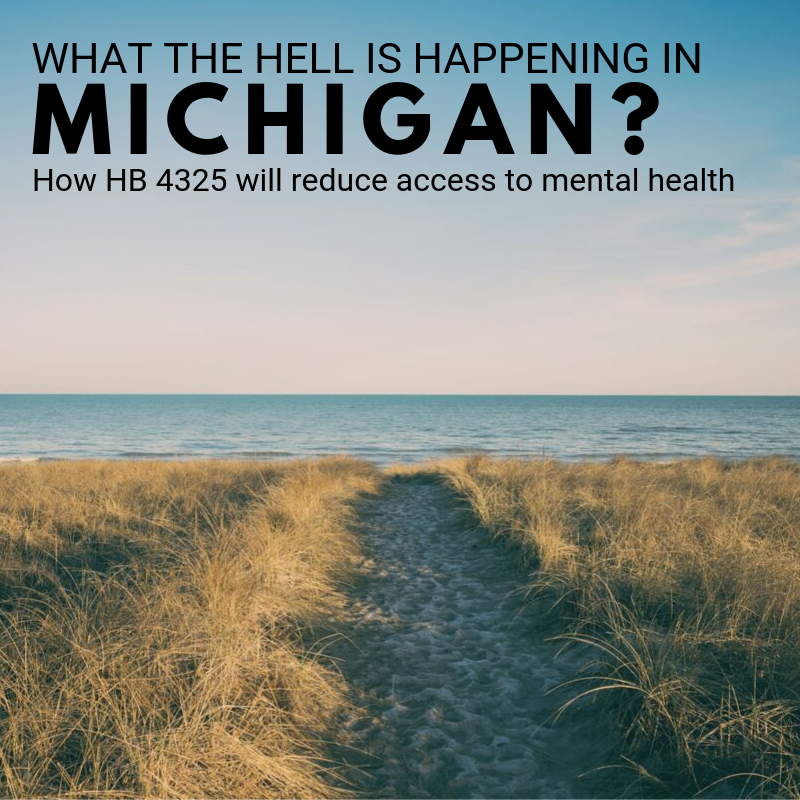- Joined
- Jun 2, 2019
- Messages
- 348
- Reaction score
- 360

Thousands protest mental health provider changes in Lansing
Thousands of LPCs say they are in danger of no longer being able to help as many as 200,000 patients because of a proposed state rule.
Proposed rule change could hurt Licensed professional counselors and patients
Mental health counselors and supporters packed a public hearing Oct. 4 hosted by the Michigan Department of Licensing and Regulatory Affairs to rail against a proposed rule changes that govern their profession. The Department of Licensing and Regulatory Affairs (LARA) proposed changing rules for...
Apparently in Michigan nothing in the state statue says LPCs are allowed to diagnose and use psychotherapy. According to the state of Michigan nothing in the statue says LPCs can diagnose so they have been practicing outside of their scope for many years. If a new state bill is written as law LPCs will be unable to diagnose and do psychotherapy. But then another bill is on the docket to restore scope to LPCs the Michigan Psychological Association is opposing parts of the bill stating that LPC training now is unfit to practice and that LPCS need better training. What do you think about this?


